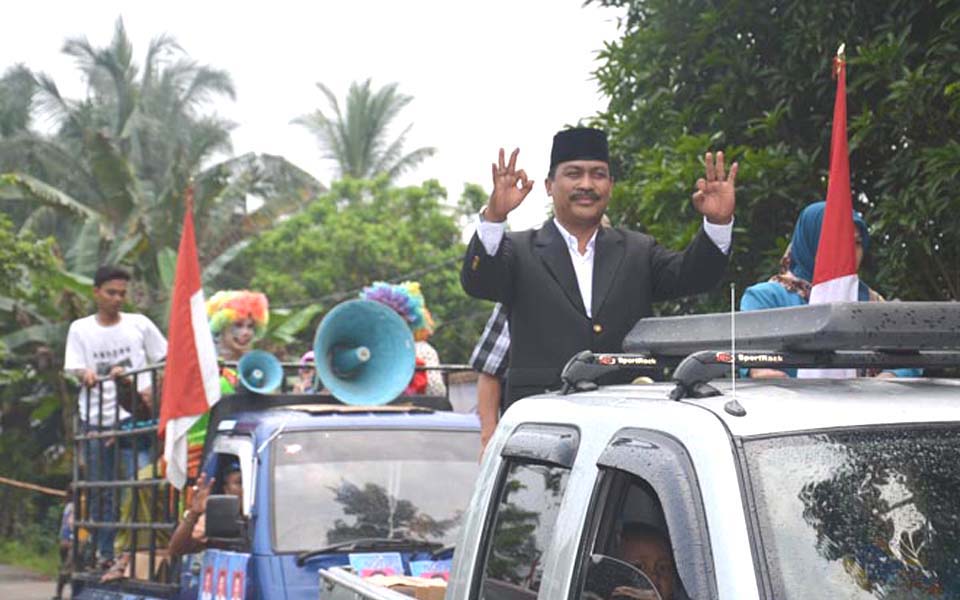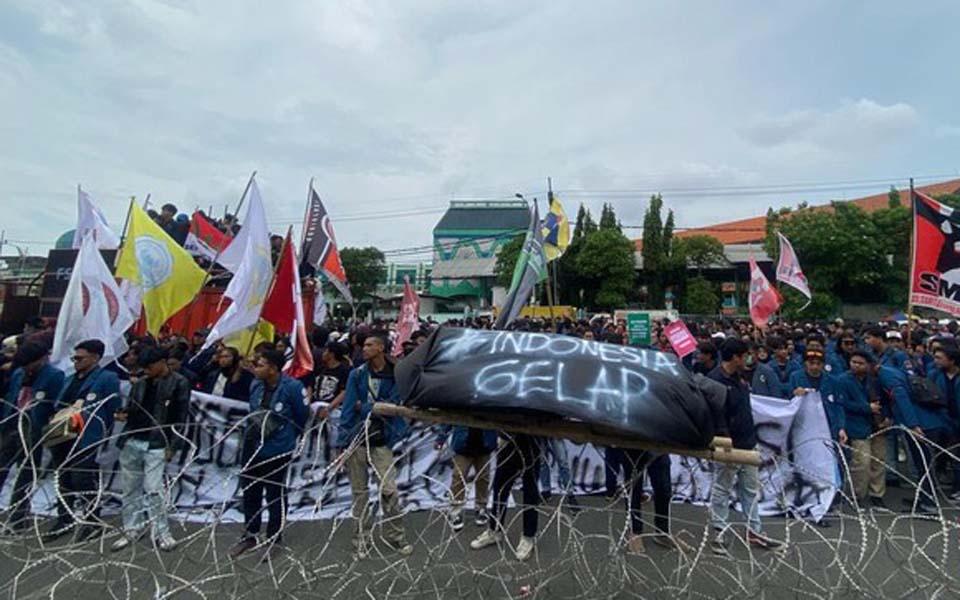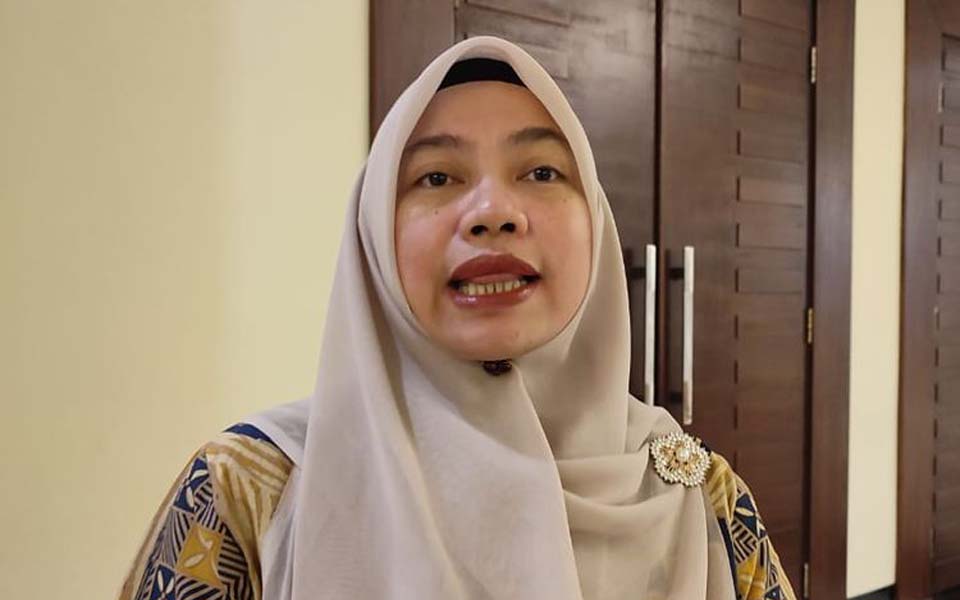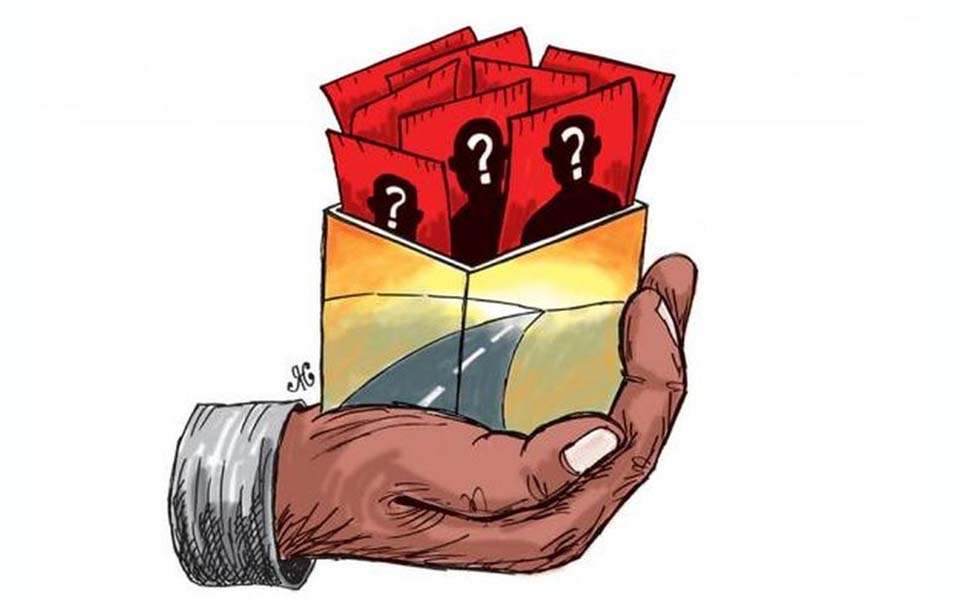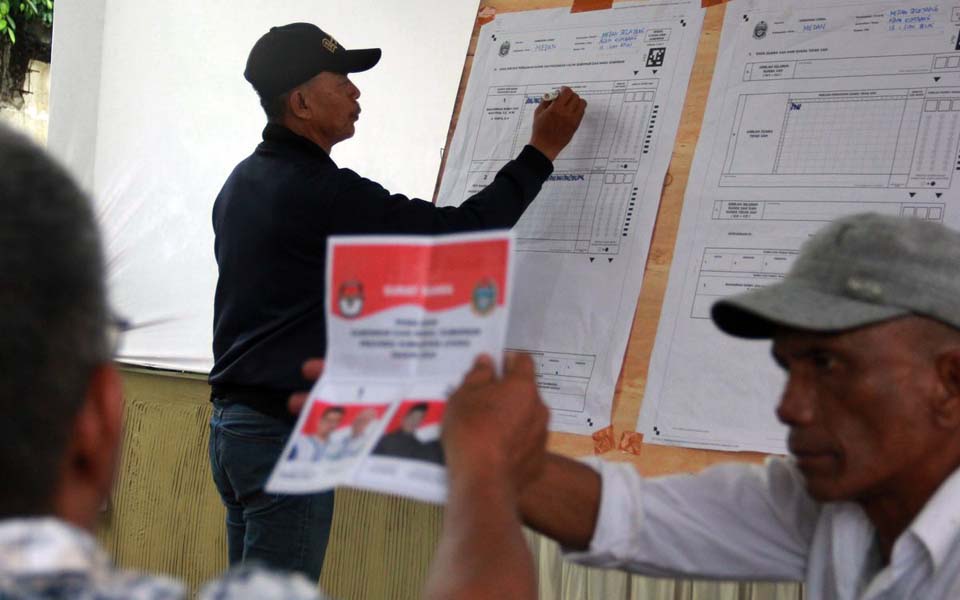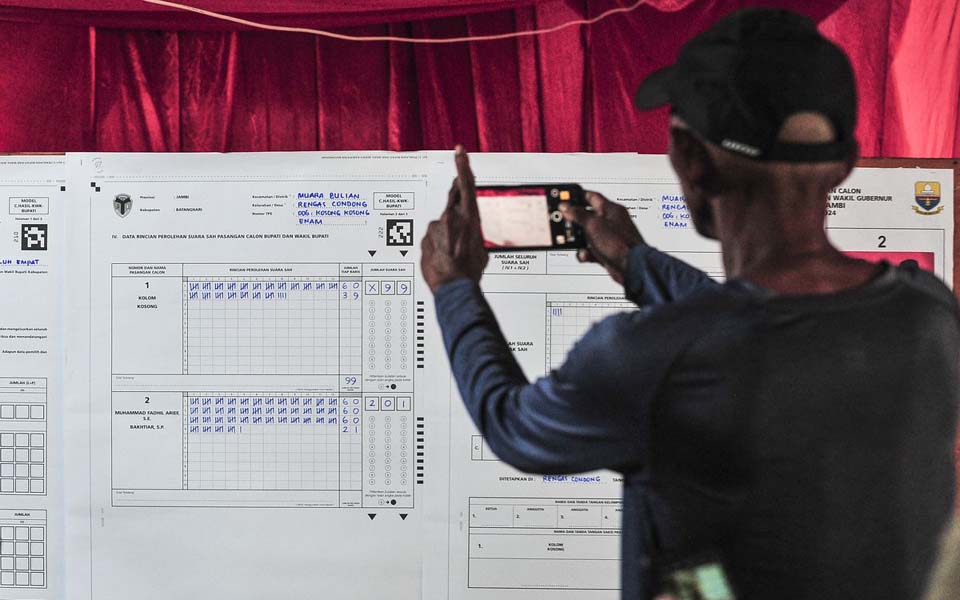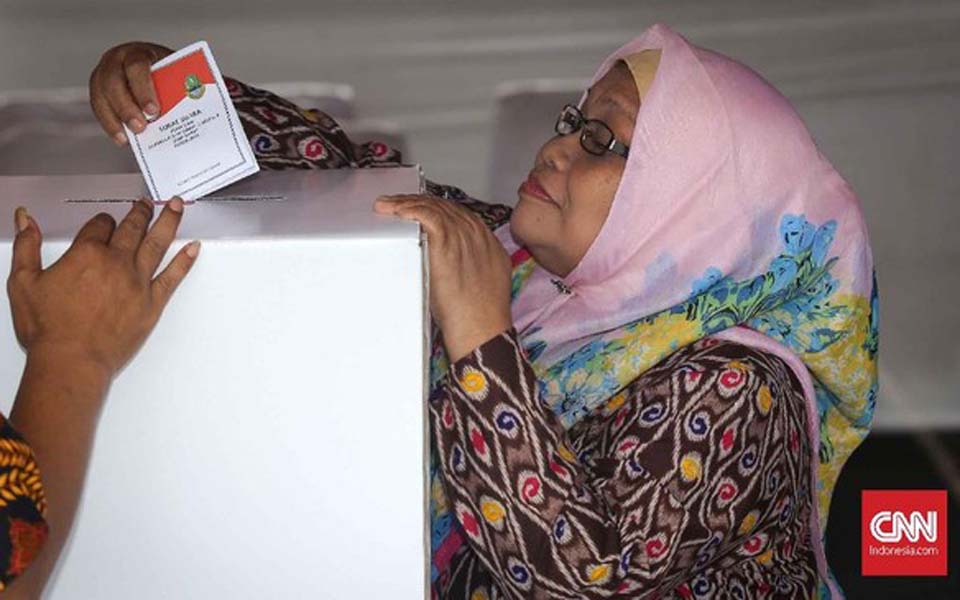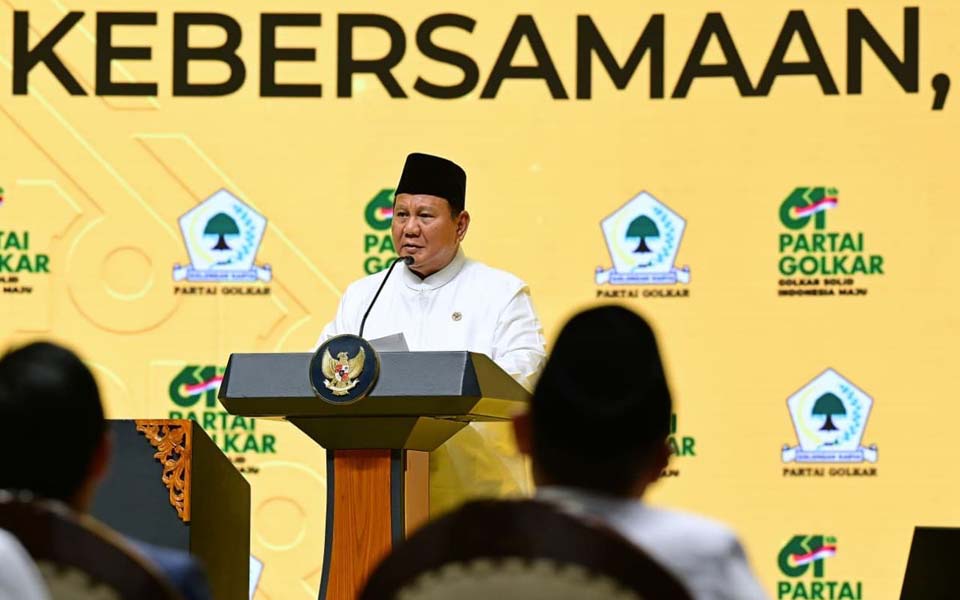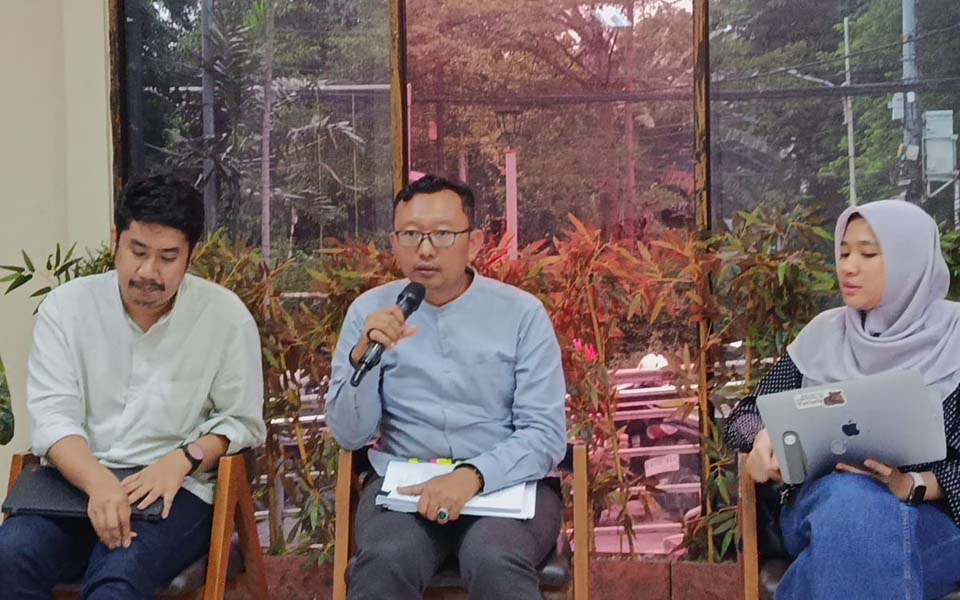Saturday afternoon, February 5. A historical day for the village of Perdamaian in the Langkat regency sub-district of Stabat, North Sumatra. Since the country won its independence almost 60 years ago, not one member of the People’s Representative Assembly (DPR) has set foot here. This afternoon, five of the 10 DPR members from the electoral district of North Sumatra III are holding a meeting with their constants.
The DPR members are Bomer Pasaribu and Mahadi Sinambela from the Golkar Party, Ansory Siregar from the Justice and Prosperity Party (PKS), Maruahal Silalahi from the Democratic Party (PD) and Zulhizwar from the Reform Star Party (PBR). The event is being facilitated by the International Foundation for Election Systems (IFES) and the Netherlands Institute for Multiparty Democracy (IMD), two foreign non-profit organisations who are active in the area of democratic development.
Unexpectedly however, the arrival of the legislators was clearly not greeted with much enthusiasm with only a few local people bothering to attended. The room was virtually empty. The organising committee had provided around 200 seats but less than a quarter were occupied. Even the head of the village failed to attend. He was represented by the former village chief.
It was as if local people were already fed up with the promise of their representative which never come to fruition and believe that regardless of whether or not there is a meeting, their lives will be the same.
Throughout the meeting, Solimin, one of the local leaders, repeatedly asked the DPR members to be serious in acting on the people’s wishes. “Pak Democrat, seriously make a note of this, okay! Please relate this directly to Pak SBY [President Susilo Bambang Yudhoyono]” he said again and again to Silalahi. Solimin was relating a number of cases of occupation of land owned by local people which have taken place since 1967, but which to this day had yet to be properly resolved.
“Pak, seriously make note of this!” he repeated again continuing to press Silalahi to take out a pen and actually record it in a note book.
Sofyan, another local, bluntly warned the five DPR members to really think about the ordinary people. “Don’t just come [here] and campaign, then after the campaign forget [us]”, he stressed. The questioning was increasingly making the legislative members sitting in the front seats look like prisoners sitting in the dock.
Similar calls were raised in two other places, in the village of Hinai Kanan in the sub-district of Hinai, Langkat regency, as well as in the village of Tunggu Rono, in the Binjai Timor sub-district of Binjai City. Nevertheless, in these two villages the people were more enthusiastic. The meeting was filled with outburst from as many as 150 people who attended.
Lembong, a member of the Hinai Kanan village reminded the legislators of the promises they made during the election campaign to build a sluice gate. “Earlier, you and the [election] success team asked [us] to vote for [you]. Now, think about the people. If there was a sluice gate, we wouldn’t forget you gentlemen and ladies. In [the] 2009 [elections] we also won’t forget”, he said during a dialogue moderated by Amir Nadapdap, and anthropologist from the North Sumatra University.
Abdul Hamid, from the village of Tunggu Rono, even became angry. The grandfather who has lived for almost a century, 99 years, has lost all hope. He no longer knows from whom to seek protection in order for him to be able to get back his land which was taken by the state. Since the era of reformasi, government officials have all made all kinds of promises but they have never been realised, even after one by one his colleges have gone to the grave.
“All of you DPR [members] from Jakarta, take care of the people’s land. My friends are all gone, but the land issues here have also yet to be solved. Since the period of independence this nation has never upheld the law. It’s all just about dividing up the money” he said gasping for breath, his hands shaking as held the microphone.
But as is usual with politicians, their cunning to obfuscate and make excuses didn’t elude them. If in working meetings at the DPR they succeed in making ministers confused, its even more so for ordinary people who have no power and a minimum of information. With their skills at debate, they tried to lead people to the view that it is actually they who must understand the members of the DPR, not the other way round.
When they met with people from the village of Perdamaian, Zulhizwar asserted that the DPR has never neglected the people. “Before, before I became a DPR member, there were also views like yours [which were expressed]. But, it turns out there is a lot of work [to do] at the DPR. We work late into the night”, he said.
Silalahi also tried to convince them that he had struggled to the best of his abilities. He related the story of how he has often fought for the welfare of farmers when he meets with the minister of agriculture during working meetings in Senayan [South Jakarta, the location of the DPR]. “I’m always asking the minister of agriculture to change just one minor issue: why during the harvesting season does the price of rice always go down”, he said.
Silalahi also tried to convince the people that he continues to fight for development in North Sumatra. “If indeed Sumatra is not developed, it’s not just other parts of the country which can be said to be breaking away. North Sumatra could also [do so]”, he said.
Siregar’s arguments were different again. He proposed a conspiracy theory. “The ones who have buried Indonesia, first of all are the foreigners. Secondly our own people”, he said.
Pasaribu and Sinambela and Pasaribu meanwhile tried to avoid responsibility. Sinambela explained that not all of the problems could be answered because some of them have already been handed over to local governments because of regional autonomy.
“It is more correct for these issues to be handed over to the regents or governors. Don’t be angry therefore if this meeting doesn’t bring about too many solutions”, he said.
Pasaribu meanwhile threw up a new a new reason for hope. He informed local people about the existence of the Joint Working Committee of 60 DPR and Regional Representatives Council (DPD) Members. He promised that the committee would be able to accelerate development in North Sumatra.
A DPR of assembly members
According IFES’ legal and electoral program coordinator, Adhy Aman, the aim of these activities are in a small part to bring legislators and the people closer together. In addition to this it also increases the spirit of team work between DPR members in an electoral district.
Following the last general elections, legislative members no longer wanted to be at odds with each other any more, rather to synergise the development of a strong team. “Problems in electoral districts cannot possibly be rapidly acted upon without there being joint team work”, explained Aman.
On these grounds IFES has expressed its highest appreciation to the five legislators who wanted to participate in pioneering the formation of a joint team for the North Sumatra III electoral district.
However it is also appropriate for congratulations to be given to IFES for having facilitated locals to all in their representative’s promises. Law Number 22/2003 on the Organisation and Composition of the People’s Consultative Assembly, the DPR, the DPD and the Provincial Legislative Councils (DPRD) clearly regulates the duties of DPR members. Article 29 Section (f) states “DPR members have an obligation to reserve, bring together, accommodate and act upon the wishes of society”.
The event also reminded the DPR of its oath/promise. “In the name of Allah (God) I swear/promise: [I] will fight for the wishes of the people who I represent in order to bring about the national goals for the sake of the interests of the nation and the Unitary State of the Republic of Indonesia”. (Sutta dharmasaputra)
[Translated by James Balowski.]





